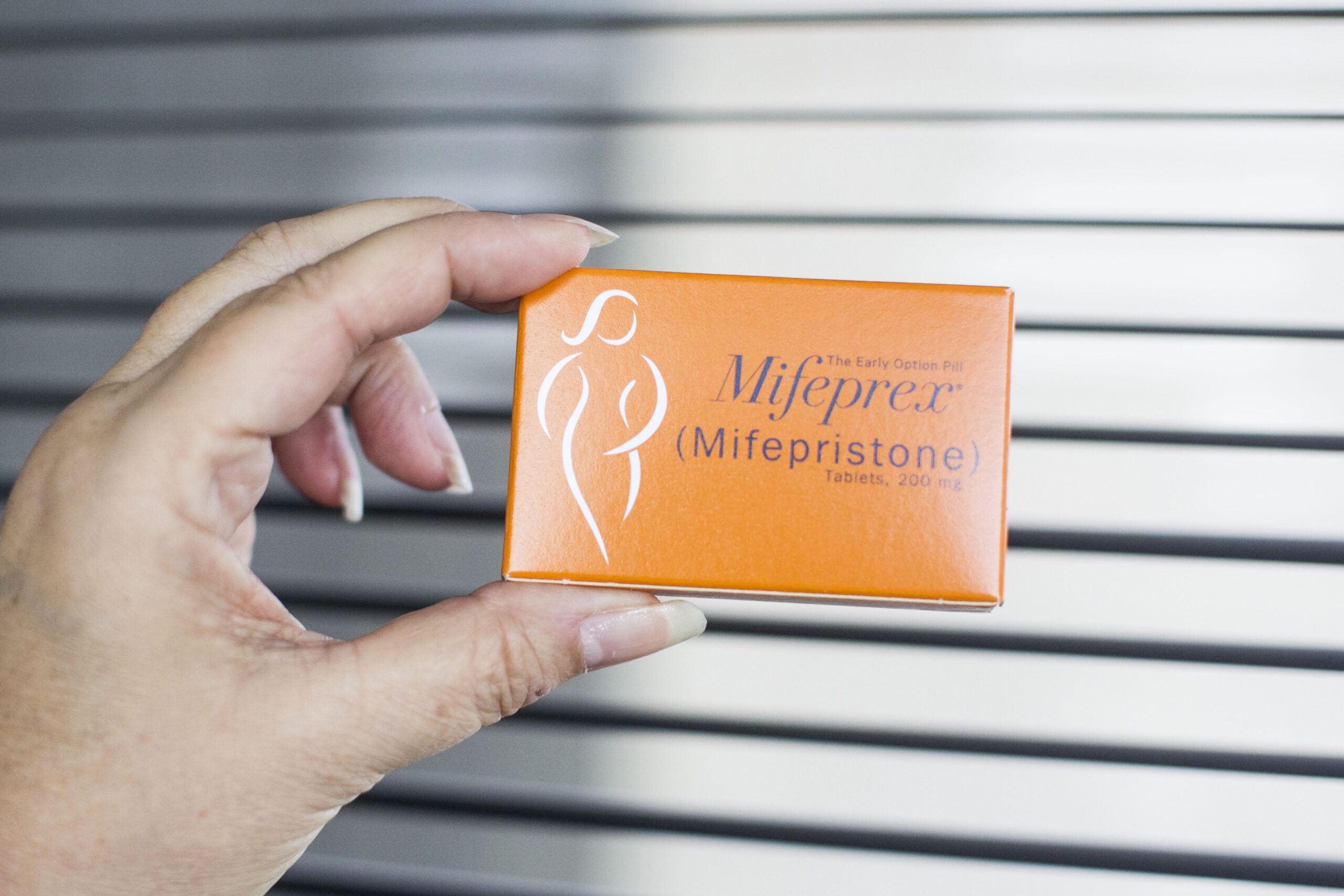There are two major lawsuits related to reproductive health in the news in Texas this week.
A man in Galveston is suing three women under the Texas wrongful death statute, alleging that they assisted his ex-wife in terminating her pregnancy. This is the first such case brought since the state’s near-total ban on abortion last summer.
Marcus Silva alleges that his now ex-wife learned that she was pregnant in July 2022, a month after the overturning of Roe v. Wade with the Dobbs decision, and conspired with two friends to illegally obtain abortion-inducing medication.
In a separate case unfolding in a federal court in Amarillo, one such medication, mifepristone, is at the center of a lawsuit. The plaintiff is asking the court to revoke federal approval of the drug. It’s one of two used in medication abortions.
Professor Seema Mohapatra is the M.D. Anderson Endowed professor in health law at Southern Methodist University, Dedman School of Law in Dallas. She said, in the wrongful death lawsuit, Silva is seeking a million dollars in damages against the three women who he alleges assisted his ex-wife in getting abortion medication.
“There’s a question about whether there is any legal standing here because Texas law does not allow any kind of prosecution or penalties for the person that actually gets the medication abortion,” she said. “And therefore, it’s not clear if there’s any kind of underlying case for the wrongful death statute to be based on.”
Even if this case does not succeed, Mohapatra predicts it will still have an impact on the decisions pregnant people make in Texas.
“Even though there might not be a legal basis for it, this is going to have a huge chilling effect on people that are seeking medication abortion,” she said. “And it’s going to have a chilling effect on anyone that wants to even just help and basically be a support for somebody that is in a state that has these restrictive laws.”
This case could also have a chilling effect on the production of these kinds of medications, given that Silva also plans to seek damages from the manufacturer of the pill when that company is named through the legal proceedings.
In Amarillo, another lawsuit could impact the availability of mifepristone nationwide.
“Even though we are talking about a drug that was FDA approved in 2000, the case is based on the fact that that might have been approved without the proper indications. That case could really have an impact on the availability of this drug throughout the United States,” Mohapatra said. “It was a very targeted lawsuit in front of a judge that has shown that they are likely to rule in a way that would be against the manufacturers and against the production of this drug, even though there might not be a legal basis for it.”
The judge will hold a public hearing and give updates in the case Wednesday. The hearing is taking place after press groups expressed frustration about the lack of transparency regarding this lawsuit.
“This is going to be the first time that we are going to have any kind of public disclosure of what’s going on in the case,” Mohapatra said. “Media outlets had been criticizing the judge for keeping all of the proceedings secret. So we will know where he is in terms of ruling on the preliminary injunction during the hearing.”













